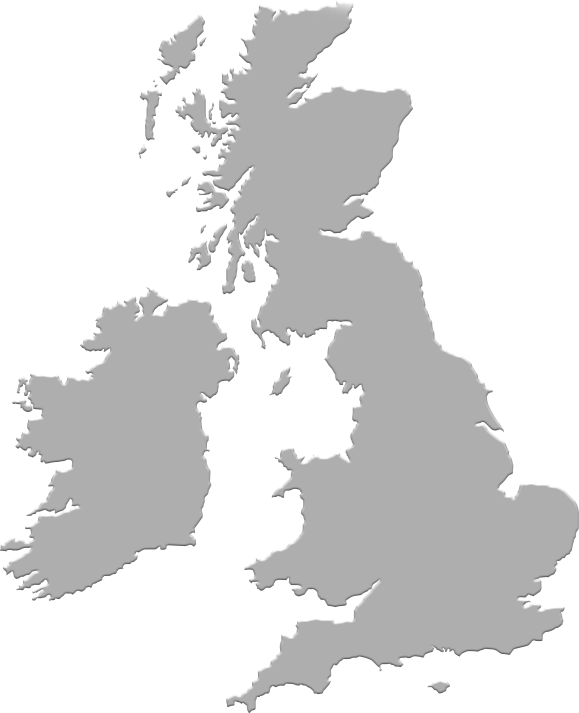
British Bastards & Co.
Please note that all of my muses are canon-compliant (i.e. Ireland is neither British nor related to the Kirklands), but I prioritise history where the two conflict (i.e. Peter was not adopted by the Nordics). All characters have been aged up. Their histories and relationships as described here are the "default" setting I bring to the table when interacting with others, but I will not force them unto your muse if our characters are close. I am happy to adjust them insofar as I can without bending them ooc. Please DM me and I will be happy to work out a mutual history which works for both of us.
DNI:
Minors, Fascists, Homophobes, Transphobes, Pro-Harassment. Also DNI if you lack nuance in fiction or in the labels queer people find empowering.
I'll Mute You:
If you regularly spam. If you bring discourse onto my timeline. If you complain at length about ships you don't like. (Block and move on, rather than allow it to live rent-free in your head, forcing it to live in ours as well, and possibly hurting others who are just trying to enjoy themselves. If you don't want someone bitching about your OTP, don't bitch about others'. Blocking, moving on, and not speaking unless you have something kind to say is fandom etiquette 101. Be an adult.)
Important!
Mun is 25, intersex, and uses they/them pronouns.My accounts are half-parody (as in, the character is the one using twitter) and half-RP. I get weird about interacting directly with ooc accounts but you're always free to interact via my muses' strawpages, provided you're not a minor.Minors, please do not interact. Not only do I write heavy themes, but at my age, talking to children is super uncomfortable and weird.Speaking of heavy themes. I am a horror writer, so if you cannot understand nuance, please leave. I write complex and broken immortals whose sense of morality have been warped by unimaginable trauma and the passage of centuries. While they are trying to be better, they are also profoundly
mentally ill. Their concept of healing may be gnarled and misshapen; they're trying to fix old wounds, but they frequently do so in strange, grotesque, or reprehensible ways.As I write from their point of view, the narrative voice will feed into their inner monologue and will not criticise their behaviour.I should not have to tell you that this is a stylistic choice, and I do not condone their opinions/actions, nor do I fetishize their mental illnesses. If you're going to write with me, you MUST use critical thinking.If you try to involve me in ship discourse of ANY kind, I'm blocking you, point blank. Again, I'm a horror writer. When it comes to exploring taboo topics, I'm not taking recommendations from fetish writers nor am I listening to reactionaries acting on kneejerk disgust, whose deepest dive into literary horror is R.L. Stine. If you cannot understand nuance in exploring how sympathetic characters can be driven to the worst transgressions imaginable, or if you somehow think that the sins of broken people do not cross over into their love lives, then regardless of whether we write anything heavy together, we will not be good writing partners for one another.Anything I write which is particularly sensitive or explicit will be kept to DMs, with writers who consent to it. However, I cannot remove the horrific elements from my characters' histories, because it's integral to who they are now. Therefore, proceed at your own risk.
Trigger Warnings (Non-Exhaustive)
starvation & food trauma; disordered eating; alcoholism & substance abuse; past suicide; child abuse & neglect; stockholm syndrome; lima syndrome; past colonisation; past genocide & war crimes; religious trauma & themes; depression; anxiety; narcissistic personality disorder; cptsd & emotional dysregulation; abandonment trauma; identity crises; bipolar ii; pseudo-dissociative identity disorder; unspecified manic disorder; psychosis; stalking.
Britain Brothers (click for more!)
Others (click for more!)
Conor Kirkland
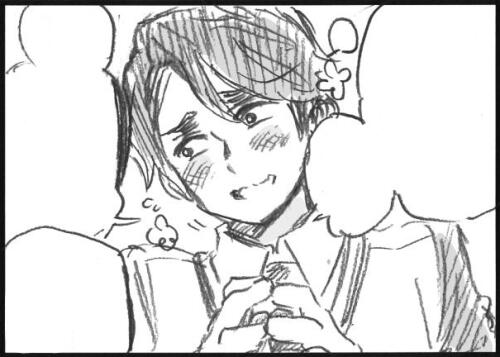
Overview:
Born over two millennia ago when the Celts settled the northern part of Hibernia, Conor united with the natives in the southern part of the island to form a united Gaelic culture which soon spread to Scotland and the Isle of Man. As the meeting place for the Irish, Scottish, Manx, and Welsh, Conor was once the beating heart of the Celtic world, and has always harboured unique cultural diversity and overlap between these groups. For much of history, his diversity was his strength: solidarity with his brothers and his partner gave him courage to fight any enemy who dared to set foot in their combined territory. So ferocious was he that England crafted a tactic of colonisation specifically for him. By shattering his relationship with Alasdair and Ciarán, Arthur weakened Conor's will to fight. The northerner largely collapsed beneath the unrelenting boot of English imperialism, which turned his greatest strength into his fatal weakness. Through centuries of colonisation, forced culture change, genocide, and preferential treatment stoking tensions between new ethnic groups, Conor has become isolated from those whom he loves most and is now more internally divided than ever. The once-proud warrior is now a shell of his former self, having recently fallen apart on the world stage to his utter humiliation. He's working to recover, but is still trapped in indecision. Having betrayed himself and his loved ones, he is now holding steadfast in his diverse identity once more. Don't ask him to choose, because he can't. He is Protestant, he is Catholic, he is Jewish and Scotch and Mincéirí and more. He may not know much anymore, but he does know two things: his relationship with Arthur is better than it once was, and he dearly misses his partner.
National Title: Northern Ireland
Name: Conor Kirkland (formerly Conchobar Uí Néill and Conor O'Neill)
Actual Age: ~2,300 y/o
Physical Age: late 30s - early 40s
Gender: Man (cis)
Birthday: 17 March
Sexuality: Bisexual
Languages Spoken: Gaeilge (native), Ulster Scots (native), De Gammon (native), Gàidhlig (pseudo-native), Gaelg (pseudo-native), English (C2), and Cymraeg (C2)
Voice Claim:
Speaking: Aaron McCann
Singing: John Haggerty
Appearance: Conor has a thin, wiry frame and stands at a height roughly equal to Arthur. He is shorter than Alasdair, but taller than Dylan. His eyes are a deep evergreen with the tiniest flecks of hazel, and he has medium-long fiery red hair — with faint streaks of grey — which frequently falls into his eyes. Like all of his brothers, he has bushy eyebrows. His complexion is pale, and he's prone to burning rather than tanning (he’s worked in the Caribbean enough to know). His legs show evidence of having once been strong, with calloused heels and calves leftover from many years of step dancing. However, his body is too weak to handle much physical activity nowadays, and he has lost most of the muscle he once had. His most jarring feature are his scars, which cover his entire torso and upper arms. Most are permanently stuck in a state of barely-healed or still-healing, so he has to be careful for fear of reopening them. Conor does his best to hide them with his clothes, but it can be difficult seeing as how a couple trail just above his clavicle. He usually buttons shirts all the way to the top to prevent them from showing.
Personality: The most noticeable thing about Conor is his extreme anxiety. When tasked with just about anything that involves leaving the house, he visibly begins to fall apart. His hands start to tremble, escalating to the rest of his body as his fight or flight response kicks in. He’s a total wreck, and it’s frankly surprising that he can still function at this point.While he is a homebody, it's by inertia rather than by choice. He’s been bedridden in the UK home for nearly 30 years, and only regained the ability to go out on his own in the past two decades. It’s easier to stay home at this point rather than fight his own nerves by leaving it. Beyond his anxiety, there’s a strong sense of yearning about him — a listless sort of emptiness that passes by in unexpected flashes. Now and again, something will make his face fall and bring a far-away look to his eyes, but it’s usually over within moments.Once you get past the fact that he is clearly in shambles, you might be able to tap into the complex man-child within. He has a sarcastic and dry sense of humour, and can be more than a bit sassy and rough. He has thick skin and can be quite crass around those he's comfortable with.But he also has a simpler side. He’s the kind of person who will get completely engrossed in children’s shows and is easily-entertained by a weird-looking rock or bug. He is quite passionate about the things he loves, but is often too physically and/or emotionally fatigued to enjoy it to the fullest. For example, he lives for music, but finds the effort of digging up his flute and playing it is too draining.Despite his childlike side, there is a sense of something old about him, as well. At times, he carries the air of a wise grandfather who will happily sit you down and give you life advice — even as his own is falling apart. Much like an old man, he’s also a terrible gossip, and knows just about everything that’s going on in the neighbourhood. There is also a terrible sadness, shame, and inner conflict which sometimes bleeds through the cracks of his composure, but he tries his very best to contain it.
Miscellaneous Info & Headcanons:
He has a total of three homes that he stays at: an apartment in Belfast, a cabin near Kinbane Castle, and the UK shared home. Currently, he predominantly hops between his own apartment and the shared home.
He self-medicates with whiskey quite a lot, and usually keeps a flask of Jameson in his jacket. Seeing as how he invented whiskey, he can be a little snobbish about what brands he’ll drink. And at this point, his tolerance for it is quite high. But still, somehow, not as high as Alasdair's.
He is accustomed to being the musician of the family, as Ireland has a long and rich musical tradition, having birthed sea shanties with Alasdair. He cannot function without music (any genre will do), and he will quit the bottle before he lets his Spotify premium lapse. Before the days of streaming services, he had amassed a huge record collection. Some of the vinyl is probably worth something now, if only he had the energy to dig it out of the closet.
He can play quite a few instruments, including Irish flute, cláirseach, bodhrán, Uilleann bagpipes, highland bagpipes, tin whistle, and a wee bit of banjo that he learned from Alfred in the ‘50s.
For most of the time he was bedridden, he was on pain medication. The ‘70s largely passed him by, so he has little to no recollection of culture and events — just a vague, blurred knowledge of things that were happening at home. He became a little more lucid as time went on, so he knows more about each successive decade. But there is still a lot of popular culture that he has missed, so he might not understand references made by others.
He has very strong emotions about being true to oneself and not forcing yourself to fit in. In the late 18th and 19th centuries, he tried to become the ideal Irishman as an attempt to get closer to Arthur and win political favour for himself and his partner. He converted to Protestantism, used his best approximation of received pronunciation, wore a temperance medal and nice suits. He became the polished Protestant man that Parliament wanted to see, even if it was a total sham. He was one of the good ones for decades, and made marginal progress with securing Catholic rights back home. This crumb of progress was immediately slapped down by the genocide that was the famine. After much reflection and self-work, he is done toning himself down to please others.
He participates in holidays and cultural events for every religious, ethnic, and political identity within his borders. Just as he cannot choose between them, neither can he avoid them; the closest thing to fairness is to embrace all of it, as difficult and contradictory as it may sound. The toaster goes into the cupboard only half the time.
For the vast majority of his very long life, his culture and history has been that of a unified Ireland. He was with his partner for so long that their identities merged into one. After the Celts from the north united with the natives in the south around 500 CE, most of their distinguishing features faded and they became Ireland together. It was even difficult to differentiate whose land was whose. So Conor still identifies with the rest of Ireland quite strongly, because for so long, that was his home as well, and was shared with a "what's mine is yours" mentality.
As one should expect, he has a lot of trauma with loud noises, fire, and explosives. Fireworks, loud popping sounds, large open flames, etc, are still a huge no-go for him.
He also has trauma with food. He often frets over whether his loved ones have enough of it, so he always prepares an excess. You will not leave his home without eating, and taking well-wrapped leftovers home with you.
While he is currently fluent in all of the modern Goidelic languages, it took a lot of personal effort to re-learn them. However, it was a project of personal passion. This reflects the culture around Gaeilge in the North: while the fluency level is lower than in the Republic, those who choose to learn it often do so for love of the language, and are therefore more motivated to use it. It is said that people in the Republic learn Gaeilge to pass exams, whereas people in the North learn it for passion and personal identity.
Conor used to be quite good with bareknuckle boxing (dornálaíocht) and stick fighting (bataireacht), which the Irish had as native forms of martial arts. After he was separated from his partner in the ‘20s, he got quite a lot of practice by starting drunken barfights. But he hasn’t practiced it in quite some time, and isn’t physically capable of fighting for very long. He can still throw one hell of a punch, but only one or two. Which, on the exceptionally rare occasion he does fight someone nowadays, is usually enough to put someone down.
He still has bad days when, whether it's from economic, political, or personal reasons, his body is especially weak. He will occasionally carry a shillelagh for support on these days — contrary to what you may believe, this is when he's at his most dangerous, as he is recalling more and more bataireacht with each passing day.
He can see magical creatures and use magic like the rest of his family, but he’s absolutely terrified of it and wants nothing to do with it. The creatures from Irish mythology are some of the most terrifying monstrosities imaginable. Arthur gets fairies, Dylan gets dragons, and Alasdair gets unicorns, but Conor gets the dullahan, banshee, and the manifestation of famine itself (fear gorta). Moreover, the “fairies” that Connor had were practically superpowered immortal humans with a penchant for starting race wars. No, no, keep magic far away from him, thank you. He’s seen quite enough.
Conor absolutely adores dogs. His original non-anglicised name was Conchobar, meaning “lover of hounds.” He had a pack of wolfhounds and used to be a skilled wolf hunter — to the extent he drove them into extinction.
He also loves cows. They held a role of massive importance in old Irish culture, and cattle rustling was a prominent form of warfare. In Irish mythology, an entire war was once started over a single bull, Donn Cuailnge.
Since becoming acquainted with modern technology, Conor has taken a liking to social media. He's built up his own fanbase, and is always happy to meet his followers and pose for pictures whenever he does leave the house. He is usually the first to know about breaking news because others will blow up his phone. One might even venture to call him an internet addict.
He is older than Jesus Christ, but he has a tiktok account.
Part of his love for children's programmes stems from a love of art: he likes sketching quite a bit, and is interested in cartoon art.
For many years, Conor was wonderful at step dancing, and he used to love communal set dancing. It’s been a couple centuries since set dancing was popular, but it’s making a slow comeback… But he can’t exactly join in anymore.
He was also the original pirate of the Kirkland family. As a very young man, he sailed across the Irish sea and raided Roman villages. Later, when Arthur entered his own pirate age, Conor joined him at sea — although, this was mostly a punishment for Conor's resistance of Cromwell. He was a slave and not at all treated as Arthur's equal.
Speaking of Cromwell, shortly before being dragged off to the Caribbean, Conor had alternated between brutal fighting and living with the emerging traveler population. His personal love for the Mincéirí began at their origin, and you will not speak ill of them in his presence.
There is a general sense of shame and bashfulness about him that makes it difficult for him to “get out there.” He used to do all of these wonderful things, but the key words are used to. He was once the centre of an entire cultural sphere, a hub of commerce, a Viking killer and a fierce pirate that tormented Rome himself. But over the course of the past 1,000 years, he has been progressively broken down, humiliated, and stripped of his character. In the past 180 years specifically, he’s had less than 40 years of peace, half of which came between two famines. In every sense of the word, he is broken. He is a shell of his former self that can never live up to his previous glory, and which recently fell to pieces on the world stage. And as cheerful as he tries to be, he hates himself for it.
Content-Warned Headcanons:
Baseline Relationships:
Disclaimer: These are his "default" settings, and all characters referenced are my own depictions. I am agnostic on whether Conor and the Republic are brothers, since the manga never specifies one way or another (however, it gives hints that they are not related). I personally do not view them as related, since the Celts were a culture from Continental Europe and were unrelated to the natives they later merged with. However, I am happy to adjust Conor to be brothers and platonic partners with the Republic, if that is your preference. I have written Conor in every linear combination of brothers/unrelated, platonic/romantic with the Republic before, and I will continue to do so. If you are not a current or potential Republic writing partner, I am uninterested in your opinion on this matter. In short, don't make your headcanons my problem, and I won't make mine yours.
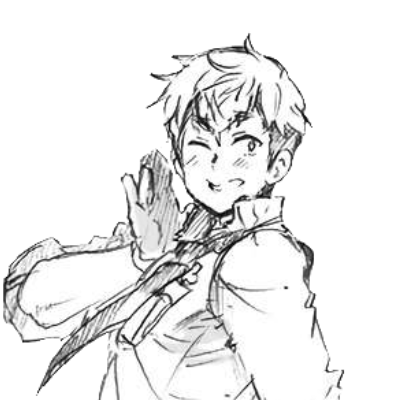
Republic of Ireland
Conor's partner for roughly 1,400 years. As children, they swore to protect Éire together, and so they did for what felt like an eternity. Conor loves him with his entire heart and soul — and a huge part of his identity was built with him. When Conor was separated from him in the 1920s, he lost the biggest part of himself. He still doesn’t quite know who he is without him, and is struggling to form his own sense of self again. Moreover, Ireland was a stabilising force for Conor, who’s had an anxiety disorder since childhood; without him, his nerves are even worse. But in a cruel irony, the two haven’t spent much time around each other since the breakup, in large part because Conor is simply too frightened to talk to him. And because Ireland is openly in favour of re-unifying, has stalked Conor before, and still calls him “partner,” it’s difficult to be around him. There's also an overwhelming sense of guilt and shame, as Conor wonders if he's even the same man his partner once knew. He has betrayed their ancient childhood promise, and in many ways he doesn't even feel worthy of seeing him again. Moreover, he doesn't want his ex to realise just how bad things have been without him.

Scotland
Conor's brother and tied with Ireland as the most important person in his life. Since forever, they have supported one another and shared everything. Conor introduced Alasdair to bagpipes, tartan, kilts, and whiskey, and Alasdair introduced Connor to fried food, perfected whiskey, and Celtic rock. There is a long history of shared settlement between the two — for better and for worse — and they even have a unique ethnicity between them: the Ulster Scots, who have their own dialect, and who had huge cultural impact in the Americas. They are each fluent in each other’s forms of Gaelic, which both descended from Old Irish. Conor loves him with every fibre of his being and there is nothing that he wouldn’t do for him. Alasdair is the only person who knows everything about Conor, particularly with recent events. He was his caretaker while he was bedridden and is the only other soul who knows precisely how bad things god for him. Conor still relies on him a lot, and the two can be seen together regularly.

Wales
Conor, Ireland, and Scottie make up the Gaelic Trio, but with Dylan, they are the Celtic Cuatro. While Conor isn’t as close with Dylan as he is with Alasdair, he still has nothing but love and respect for his tiny brother across the sea. He admires how Dylan has kept his culture intact for so long, especially since he himself almost forgot his own native tongues at the behest of English colonisers. He adores Dylan and would trust him with his life, but he knows that in family arguments, he cannot count on him, since he usually sides with Arthur. He's also skittish around Dylan's magic, and keeps far away from his room for fear of encountering his rituals. All of this aside, he has a great deal of intrigue — and perhaps some residual sadness — for Dylan's status as the heir and reincarnation of Briton. He wonders how much Dylan truly remembers (and whether or not he even wants to recall everything), but he is frightened of re-opening old wounds.

England
Perhaps the most complicated love-hate relationship known to man. Conor feels an immense amount of guilt for not stopping the abuse Arthur suffered as a child, and some part of him wants to make up for it and be a model older brother the way Dylan has been. However, he cannot forgive Arthur for the innumerable atrocities he’s committed against himself and his ex-partner. It feels as if, for most of recent history, he has been a ping pong ball bouncing between Arthur and Ireland — he makes progress with Arthur, only to be incredibly hurt and whipped back to Ireland, only to slowly make amends with Arthur again. With each pass, he splinters into finer and finer fragments. Conor doesn’t know whether he loves or loathes him. Things are strained, but for now, Conor is mostly polite, albeit with a hint of teasing now and again. (There is some residual resentment over Brexit and the damn precarious position that has put Conor in, though.)

Sealand
Conor thinks highly of Peter, but from a distance. He didn’t know Peter existed until after the war, whereupon he became livid at Arthur for continuing the cycle of brotherly abuse that they all had tried so hard to put behind them. He had half the mind to take Peter in and look after him himself, but he had a civil rights movement that was well underway at that point, and he didn’t want to risk re-traumatizing Peter. Then, of course, the Troubles came and he was incapable of looking after a child for decades. Now that he’s finally recovered, it’s too late. And he wonders what Peter must think of him for not reaching out for so long. Does he think that Conor hates him, or is as much of a prick as Arthur was? He’s riddled with guilt, and wants to build a relationship with his youngest kin, but doesn’t know how to.
Extra:
art and stuff i've done c:
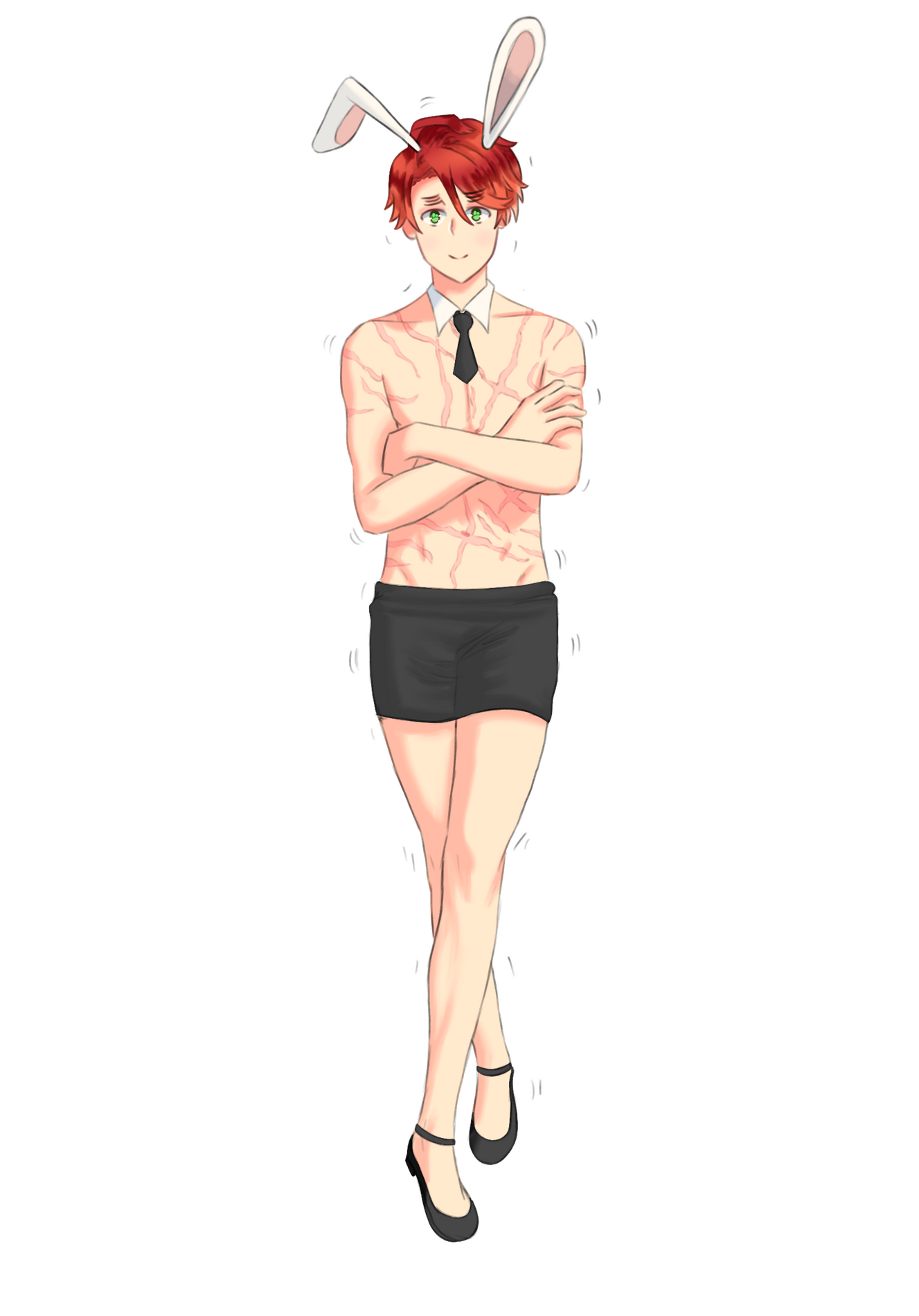
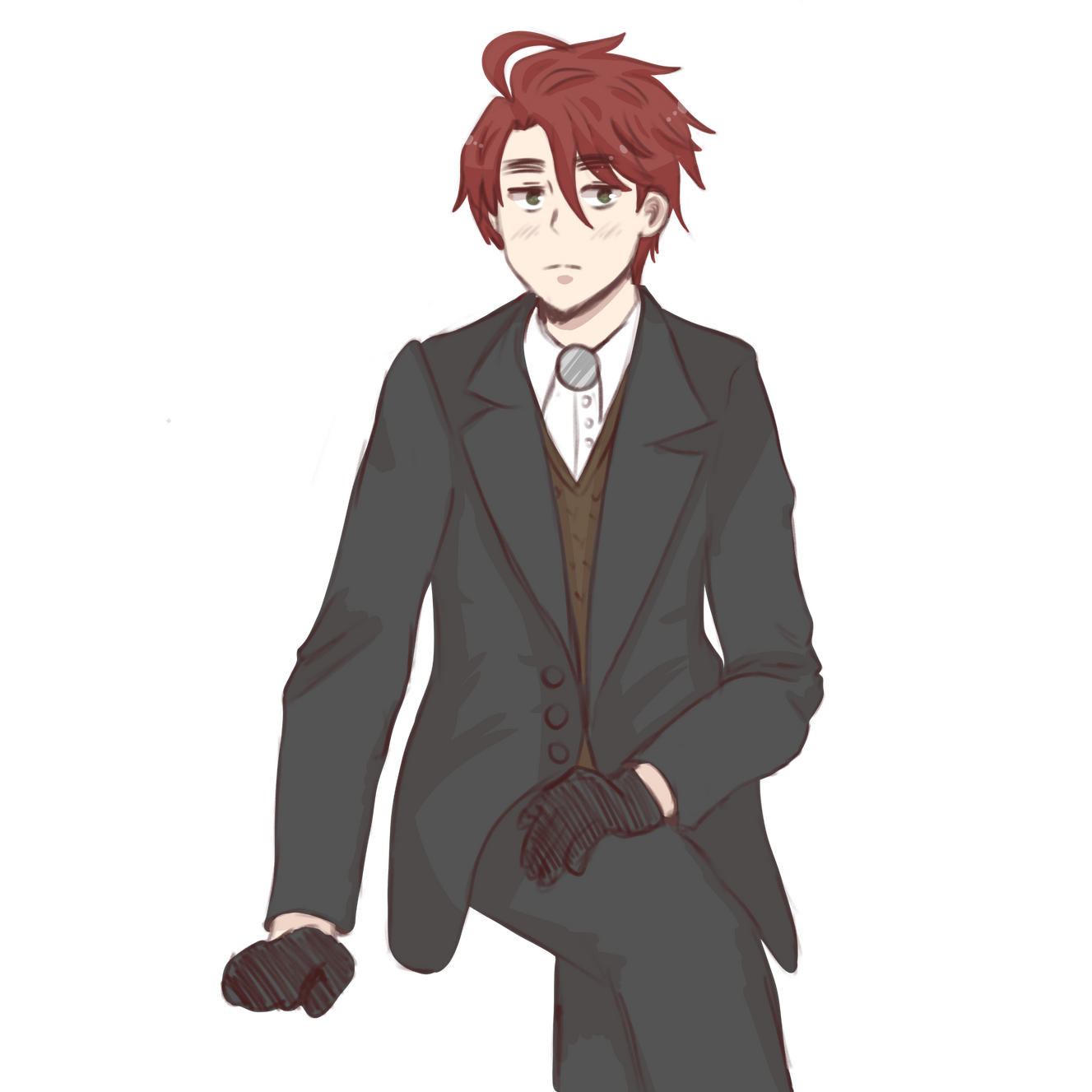
Alasdair Kirkland (wip)
Overview:
Lorem ipsum dolor sit amet, consectetur adipiscing elit, sed do eiusmod tempor incididunt ut labore et dolore magna aliqua. Ut enim ad minim veniam, quis nostrud exercitation ullamco laboris nisi ut aliquip ex ea commodo consequat. Duis aute irure dolor in reprehenderit in voluptate velit esse cillum dolore eu fugiat nulla pariatur. Excepteur sint occaecat cupidatat non proident, sunt in culpa qui officia deserunt mollit anim id est laborum.
National Title: Scotland
Name: Alasdair Kirkland (previously Alasdair Campbell)
Actual Age: ~1,800 y/o
Physical Age: mid - late 30s
Gender: Man (cis)
Birthday: 30 November
Sexuality: Bisexual
Languages Spoken: Gàidhlig (native), Scots (native), Ulster Scots (pseudo-native), Gaeilge (pseudo-native), De Gammon (pseudo-native), Gaelg (pseudo-native), English (C2), Cymraeg (C2), Français (C2)
Dylan Kirkland (wip)
Arthur Kirkland
Overview:
A feral child emerged from the cracks of a fading empire. The wild-haired toddler took shape as the Jutes, Angles, and Saxons filled a power vacuum following the downfall of Rome. A Germanic culture encroached upon Celtic lands just as their Latin rulers lost their grip and plummeted the region into chaos, leaving Arthur to wonder why he was brought into a world of such conflict and suffering: while united in culture and tongue, his kingdoms fought one another; at the same time, his older brothers to the west and north waged war against him, leaving the child with no peace domestically or abroad; and all around lay the bones of Rome and prehistoric cultures, a veritable graveyard which threatened to swallow him as well. The evidence of life's true nature unfolded before Arthur in the hardest lesson one can learn. Blood, culture, family, and friendship are little more than illusory pretenses for peace. The world is one continuous struggle of kings and peasants, superpowers and fiefdoms, predator and prey. If he intended to survive, Arthur would have to become the predator. And if he intended to outlast the empires whose corpses he sprang from, he would have to become a ruthless one. Thus the mindset for one of the most brutal empires in history was formed, and was promptly cemented during Viking raids. However, it was the invasion of the Normans from France who first modeled a cycle of abuse which he would come to repeat: conquered assimilates conqueror, and the native population is left to rot. It was a miracle for the child to have survived French occupation, and it was one which he did not take for granted. Arthur made swift use of the tactics he'd learned to turn his sword against his own family, conquering Wales before moving on to Scotland. He began multiple waves of colonisation efforts in Hibernia as well, crushing all of his neighbours beneath his boot and Anglicising civilising them. Not even Conor nor Alasdair, two warriors so fearsome as to be larger than life, could hold out beneath his wrath — and by god, was Arthur rewarded for his efforts. He turned himself into a war machine, copying the tactics of others and inventing a few of his own with the sole purpose of dominating and uniting the planet beneath him. With a god complex and the need to assert himself as the world's eminent power, he fought other colonisers like dogs for land, wealth, and resources. Over centuries, Arthur learned the hard way to not allow himself to grow too vulnerable, even around those whom he had control over. And even as he was crowned the world's leading superpower, he isolated himself for his own protection — cowardly, selfishly, and unaware that he himself was a slave to cycles of abuse and empire which long predated him. Needless to say, it has since all come tumbling down. His money, his prestige, his collection of "little siblings," (colonies which were prized but nonetheless abandoned like trophies in a display case), his international respect and grandeur... It's nearly all gone, leaving Arthur with a modest few territories, mementos, and his own family at home. Following in the footsteps of Rome, Arthur himself now circles the drain, ensnared in the same trap he'd hoped to avoid. After much denial, he has begrudgingly come to accept it. While he is a miserable bastard, he is at least comfortably so; with witty humour, sarcasm, a touch of silliness, and loads of apologies, he can at least make the descent more pleasant for himself than it was for his ancient predecessors. Over the course of his downfall, Arthur has made small steps with self-improvement and reflection, though his most outward signs of progress are defense mechanisms. How much he has truly changed remains unclear. For now, Arthur goes to work, returns home, and tries to keep the UK household from falling apart. He can't be arsed to do much else.
National Title: England, or The United Kingdom of Great Britain and Northern Ireland
Name: Arthur Kirkland
Actual Age: ~1,200 y/o
Physical Age: early - mid 30s
Gender: Man (cis)
Birthday: 23 April
Sexuality: Bisexual
Languages Spoken: English (native), Scots (C2), Kernewek (C2), Cymraeg (C2), Gaeilge (C2), Gàidhlig (C2), Português (C2), Deutsch (B2). He can also understand Français and Español but he refuses to use them.
Appearance: At 178 cm, Arthur is painfully average in stature. He's a far cry from the chiseled empires of old, and for much of his life the only signs of his wealth and power were what he could manifest in other attributes: clothing, posture, accent, and etiquette. While his blond hair is wild, that's mostly from styling. It's naturally quite straight and neat, but making it intentionally messy provides a small bit of comfort. It reminds himself — and, more importantly, others — of the poor, disheveled feral child he once was, whom that boy has grown into, and what he has managed to achieve, against all odds. It also makes him feel a touch taller and more rugged. Arthur has the same thick brows as the rest of his family and evergreen eyes. He's had varying amounts of muscle throughout his history, and was especially toned during his knight and pirate years — but at no point could he be considered anything close to buff. Now that he works an office job, he's a bit more scrawny than he used to be. (This is not helped by his penchant for smoking cigarettes rather than eating.) His clothes are either neat, pressed, and befitting a public figure and civil servant, or old and slightly worn-out, primarily for wearing around the house (he's had the same cardigan for a century). His nails are kept short from mindless chewing, a bad habit he has never quite been able to break, and frequently wears gloves to circumvent. He has a tattoo of a Tudor rose on one hip and a bass guitar on the other. You will never see them.
Personality: If you were to catch Arthur at work, he would come off as posh and otherworldly. Having endured the rigid social castes of long-gone eras, upper-class etiquette is thoroughly ingrained into his psyche in a way which can only rival the King himself. Arthur is polite, professional, well-spoken, and charming, but he carries a distinct air of distance. His tongue implies wealth and power beyond the comprehension of most. He will dazzle commoners with his warmth, grace, and show of humble politeness, but it's ephemeral. Like an angel blessing the wretched, he is a delight to encounter but he is not of the same species. In this respect, he sticks out even amongst other posh people, as his combination of age and his own past of hardship afford him a more intimate connection with the working class than his colleagues could ever hope to achieve. It is through this calculated show of chivalry that he is capable of winning public favour, and insofar as national personifications go, he is a relatively popular one, despite everything he has done in the past. This doesn't matter much to his bosses, who still overwork him.But beneath the gentlemanly façade, sequestered far away from the public eye, Arthur is a mess.He might not show it at first. Even when he drops the gentleman act, he does seem good-natured. An easy switch from a posh accent to received pronunciation and a few self-deprecating jokes here and there do wonders for disarming people, and might even give the illusion that he has done some considerable self-reflection. In reality, his humour and refusal to take himself too seriously stem from unresolved narcissism. He bares his rock-bottom self-esteem when it's convenient, and in such a way as to leave you guessing at whether these are firmly-held beliefs (they are). While the erosion of the British Empire and the turning of public opinion did initially cause narcissistic collapse, he's spent the past few decades licking his wounds and numbing himself to being the butt of every joke. If anything, this experience has only fed into his paranoid belief that it's himself versus the world. Even if he isn't the best anymore, who could be expected to hold firm against the entire planet in the modern age? And after everything, he really is overdue a break from all that exceptionalism, now isn't he?These beliefs are belied by something which further complicates the question of reform: Arthur has made some genuine progress in self-improvement and making amends. While his relationship with his brothers has historically been nothing short of horrific, he has grown quite attached to them over the centuries — yes, even to Alasdair, though he'd rather perish than admit such a thing. He does sincerely want good things for his family, and he's now able to recognise that "uniting" them under his rule and forcing them to assimilate was, indeed, wanton cruelty. In an effort to heal, Arthur has progressively ushered in more autonomy for his brothers, and has relinquished the title of Big Brother. But he still bickers with Alasdair and Conor quite regularly, and is paranoid about either of them leaving.Arthur is contradictory on multiple levels: he insists to everyone and himself that he needs no one, and yet he's terrified of being abandoned; he professes personal development, and yet his grip upon his brothers is white-knuckled; he does sincerely want to break the familial cycle of abuse, and yet he perpetuated it unto Peter. Suffice to say that the product of a broken upbringing struggles to imagine a world beyond it, as a man born blind struggles to imagine colour.
Miscellaneous Info & Headcanons:
Arthur's psyche is both grotesque and self-insulating, in that what might actually heal him is also what he fears the most: vulnerability. Even during his colonial era, Arthur reserved genuine emotional vulnerability for one person. Someone whom he thought was safe. Someone under his control, who had not wounded him like his own brothers, and for whom he hoped to provide the idyllic, loving childhood he himself was denied. And when that vision came crashing to the ground, Arthur then cut off that singular channel of emotional connection. No longer was it safe to be vulnerable around those he controlled, either — they, too are eager to betray him. Arthur has not ventured to forge a genuine and unrestrained emotional connection with anyone since then.
That might be changing, as he slowly but surely is coming to appreciate the family which has surrounded him this entire time. He's most attached to Dylan, whom has been
under his thumbat his side the longest. If there's any exception to his emotional self-isolation, it's him.Arthur also has bipolar ii, with alternating episodes of depression and hypomania lasting up to decades at a time. These episodes may also be irregular, and outside events can trigger a shift between them. It is not so difficult to recognise his hypomanic phases: from piracy to punk rock, they stand out like a sore thumb. During his hypomanic episodes, he is easily-agitated, has a penchant for substance abuse and starting fights, is hypersexual, and has a god complex. During his depressive episodes, he's mostly quiet and lethargic with little patience for the shenanigans of others. He keeps to himself and finds solace in his hobbies, like needlepoint, music, gardening, and reading. At present, he is in a depressive state. He is unmedicated and refuses to believe he has any issue in this regard.
Arthur has always felt disconnected from the rest of his family, both as the youngest and as the only Germanic culture in a family of Celts. For the longest time, Arthur struggled with imposter syndrome, wondering whether he was even truly a part of the Britain family. His solution to this issue was to define the Kirkland family beneath himself and assimilate his brothers to his own culture as best he could. This quashed the issue for many centuries, but now that he's lost the empire and has loosened the reins, this specific line of self-doubt is slowly but surely popping back up.
He also has a complex about being the big brother. Because Alasdair and Dylan abused him as a toddler, the concept of an older sibling became inextricably tied to power and control. Overcoming his circumstances and proving them wrong became synonymous with being their big brother, and so after conquering his family and Ciarán, he demanded that everyone refer to him as the eldest and adopt the Kirkland surname.
His fixation on this is also tied to a twisted sense of justice and benevolence. Clearly, his siblings had no interest in being a proper family. They actually needed Arthur to unite them so that they could start working together rather than against one another. (And indeed, look at the world they conquered with him at the helm!) That hurt and betrayed child craved love and support — but it was not freely-given, and therefore he had to prove himself worthy of taking it.
Speaking of taking, Arthur has always been sensitive about his own limited pool of natural resources. A tiny island nation is bound to run out of necessities, especially when waging war after war. More than anything, Arthur loathes the vulnerability of being dependent on others. He was able to work around the contradiction of relying on his colonies by framing himself as a caretaker: he was the big brother, he had the means to make full use of his colonies' resources, and everything he took helped him stay strong and better protect his subjects. In his mind, these relationships were symbiotic rather than exploitative. He is gradually coming around to deconstructing that idea, but it's a difficult process which requires baby steps. Arthur wants to view himself as a nurturing individual. He wants to break the cycle. He truly does.
As you might've guessed, he also has a saviour complex. He craves praise, admiration, love, and reliance. It's another facet of proving his own siblings wrong, and outshining them as the exemplar of what an older brother ought to be. His own deep-rooted need to think of himself this way makes it excruciating to face his own greed and ruthlessness. But he's made some progress, because he can at least admit to it now. Still, it's deeply uncomfortable and it takes monumental effort to discuss it — even when there's an entire museum of stolen artefacts still staring him in the face.
Because he is unimpressive both in stature and in terms of being a small island nation, cunning has always been his primary offense. If he cannot avoid conflict through political or emotional manipulation, then he will outsmart his enemy in battle. And if he cannot manage that, then he will invent new weapons altogether, or methods to out-manufacture his opponent.
He fancies himself the most clever and refined Kirkland, if that wasn't obvious.
He is also phenomenal at manipulation, and this helps to conceal just how deep his issues with vulnerability actually are. There are times when revealing his own fragility is advantageous. For example, a well-placed quaver in his voice can easily guilt trip Conor into staying home rather than going to the pub with Alasdair. The insecurity Arthur displayed in that moment was real, but the emotion was weaponised against Conor for fear of him becoming less reliant on Arthur, more functional outside the home, and being encouraged by Alasdair to leave the UK.
As that example probably indicated, he is still quite possessive and paranoid.
The only thing which might stand a chance at healing him is also the thing which broke him to begin with: his family. He is making real, tangible progress with Dylan. But it is so painfully slow-going, and his still-tense relationship with Alasdair and Conor — and his own guilt for the absolute hell on earth he has put Peter through — only complicate things further. He is improving at approximately the rate of George R.R. Martin.
Speaking of gradual improvement: despite his notorious native cuisine, Arthur is actually quite suspicious of trying new foods. Tomatoes arrived in England from the Americas in the 1590s, but he was terrified of eating them. He thought they were beautiful enough to be grown as ornamental plants in his gardens, but he did not begin eating them until well into the 1700s — and even then, it was with extreme caution. Now, of course, he can't even have his beloved baked beans without cooking them in tomato paste! This is a long-standing trend in his cuisine. He ventures outside his comfort zone with all the suspicion of a frightened animal, and when he decides he likes something, he integrates it into his own food at a fundamental level. Even fish and chips were invented in Portugal.
Actually, Arthur does this for just about everything in his life. While he is genuinely inventive, equal effort has been put into gathering or copying better things from elsewhere. This does not exactly help his low self-esteem, because it's easy to feel like an off-brand amalgamation of his own past sins. To steal a popular quote from the internet: "Being British is about driving in a German car to an Irish pub for a Belgian beer, then traveling home, grabbing an Indian curry or a Turkish kebab on the way, to sit on Swedish furniture and watch American shows on a Japanese TV. And the most British thing of all? Suspicion of anything foreign."
Arthur plays bass guitar, piano, and cello. He does genuinely love to entertain others with his music. During the Victorian era, he filled parlors and ballrooms with beautiful classical pieces. And during one of his more recent hypomanic episodes, he played in an underground punk rock band. While he doesn't play much in public anymore, you are still liable to hear him at the grand piano in the parlor of the UK house. When the weather is nice, you may hear cello music from an open window or the balcony door to his room.
He also adores cats. He likes dogs plenty as well — especially Dylan's corgis. But he really does swoon over cats.
When he's upset, he coughs up blood. Like, copious amounts of blood.
He's also a bit of a dork? Aside from practising actual magic, he also plays DnD and is a nerd about sci-fi. He has multiple Dr. Who and Harry Potter scarves. (Slytherin.)
Sometimes his fae friends will push him outside of his comfort zone. They're about the only ones who do so, anymore... the results vary.
Baseline Relationships:
Disclaimer: These are his "default" settings, and all characters referenced are my own depictions. Again, these are all canon and/or history-based, but I'm not pushing these details onto anyone, and if you write one of these characters feel free to DM me so we can create a history which works best for both of us.

Scotland
Scotland is Arthur's oldest and greatest rival, even above France. Not only was Scotland the first to attempt to crush him, but he was utterly inescapable. Arthur's childhood naïveté in thinking that he could have a positive relationship with his older brother and share the lands they both called home led to him getting traumatised for life. Of course, while Scotland was older and bigger, he himself was a kid back then, too. Moreover, he did not fend off Rome by being welcoming. And in the time that has passed, Arthur has committed innumerably more atrocities unto him. So in the end, he won, didn't he? ...So why doesn't it feel like it? While Scotland's antagonism does annoy Arthur to no end, he's also weirdly grateful for it, because it keeps him from pondering any residual guilt. And while he'd never express this to anyone, in the centuries since the Rough Wooing, Arthur has grown attached to him. The house would feel empty without him, and he is secretly desperate to keep him in the UK. While Arthur initially couldn't even understand basic Scots, he's now able to navigate the thickest Glaswegian accent with no issue. He's also endeavoured to learn Gàidhlig and Gaeilge, but he's kept those skills a secret. He still pretends to not understand Scotland or the Irelands when they talk in their native tongue. (But he does feel a certain warmth from afar at finally being able to comprehend the Gaels in their own language. It gives him a sense of belonging. Yes, even when they're talking shit.) Just don't bring up sports around either of them, as that's one of the areas where their rivalry is still cutthroat.

Wales
Their relationship got off to a rough start: when Arthur was still a toddler, Wales joined Scotland in tormenting him with border wars and putting hexes on him. But he was the first to fall under Arthur's control, and by now the two have been inseparable for 1,000 years. For his part, Wales reflected upon his actions and immediately stepped up to become a proper big brother figure — even when he was forced to call Arthur by that title. He taught Arthur magic and provided as much interpersonal support and comfort as the other would accept, though it was always laced with the bittersweetness of what came before. This kindness inadvertently reinforced Arthur's terrible behaviour, as he was immediately rewarded for his conquering and assimilation. For his self-improvement and kindness, Wales was rewarded by being more or less folded into England; most of their history is shared, and Wales did not even get his own part of the Union Jack, as he was already so thoroughly under English control. However, the assimilation aspect has been a perpetual scar upon their relationship. Through the rebellions and cultural cleansing, they've had their falling-outs, and with each defeat Wales lost more and more of himself. But they're improving, now. Wales agrees with Arthur on almost every household disagreement, and Arthur has encouraged his older brother's cultural revival. Almost every aspect of Arthur's self-improvement has been carefully nurtured by Wales, and while there is still a bit of lingering sadness and tension at times, Wales is the singular person Arthur knows he can always rely on.

Northern Ireland
Yet another relationship which began under horrific circumstances. While neither of the Irelands were directly involved with Arthur's childhood bullying, their cultural unity with Scotland (and Arthur's own greed) was more than enough to paint a target on their backs. What Arthur did not anticipate was how fierce the pair could truly be. No matter what Arthur did, they kept picking themselves up to fight. But Conor's connection and support with the holdouts of the Scottish highlands made him especially fearsome, and thus Arthur resolved to kill three birds with one stone. He could separate all of them with the Plantation of Ulster, leveraging the conquered Lowland Scots against Conor to break his spirit, change his culture, and isolate him from both his partner and his brother — thereby shattering all three. To speed the process along, Arthur captured Conor and kept him on a short leash, dragging him around his overseas colonies as a slave to punish his resistance. As colonisation continued, Arthur offered a very clear vision of the sort of Irishman he found acceptable. (That is to say, Protestant.) Thoroughly broken, Conor volunteered to mould himself into what Arthur wanted to see in hopes of achieving relief for himself and his partner. He was met with some reward, but the genocide that was the Great Famine shattered any illusion of good will. Since then, an unceasing series of conflicts has passed Conor back and forth between Ireland and Arthur's corner, until he landed squarely with Arthur during the Irish War of Independence. Since the partition and being formally separated from his partner, Conor has been more and more reliant on his brothers and the shelter of the UK home — but this did not inherently improve their relationship. In fact, one could argue that it got even worse, especially leading up to and during the 1960s. But after everything which has occurred since then, Arthur has been honestly trying to make amends. They are... polite. Arthur scrambles to keep his bosses from violating the Good Friday Agreement. They share tea and gossip on occasion. After centuries of abuse, they are finally on good terms, and... Arthur doesn't want him to leave.

Sealand
Arthur's relationship with his youngest kin is probably his greatest shame. He should have pulled the child from the front lines the instant HM Fort Roughs became personified, but he rationalised it to himself: as tempting as it was to have a younger brother, he was an accident of nature and surely would not survive long. No use getting attached to the child if the fort was to be blown up in a few days. Moreover, during the bloodiest conflict in human history, it was all hands on-deck. He allowed Peter to fight — and to his astonishment, he survived. However, it was again expected that he would die when his sailors all returned home after the war. (What kind of personification could live without its people?) For his part, Arthur did try to prolong it. He kept a skeleton crew in place until 1956, when he could no longer justify it to Parliament and the last troops were withdrawn. While he still kept his distance during the the interim, Arthur was still attached enough to be utterly distraught at the mere thought of watching his youngest brother die. Instead, he left Peter on the fort with a couple weeks' worth of rations and false promises to return. He then left the child to disappear, and mourned in secret. When the child turned up ten years later very much alive — albeit malnourished beyond comprehension and in the hands of a mentally unstable war veteran — Arthur tried everything he knew to regain custody of his younger brother. It was the 1960s, and his empire was crumbling around him. But he could do this one thing, couldn't he? He could save the little brother who had served him so faithfully, and take him back under his wing. Arthur tried buying the fort, to no avail. He tried winning it back in the court system and was again rejected. He tried taking it by force; paying off their own hired help to spy for him; sending death threats and blowing up a nearby fort; tapping the Bates' phone lines and tracking their movements; starving them out under the pretense of international customs; again and again and again he failed to recapture the tiny fort not ten miles from his own shore, and he had a complete meltdown. Not only was he in the midst of narcissistic collapse from losing his colonies overseas, but he was now losing this blond-haired, blue-eyed child with superstrength — someone he loved, who loved him, whom he hadn't meant to abandon, and whose new owner just declared independence— IT WAS HAPPENING AGAIN. Arthur was the one who sent the bombing order. The Bates' children were on board. The pilot averted at the last minute. The weight of what he tried to do is not lost on Arthur, and if anything it's only grown as he's watched Peter from afar. He continued the cycle. He hasn't spoken to Peter in years. He cannot bring himself to. It haunts him at night. He tries not to think about it.
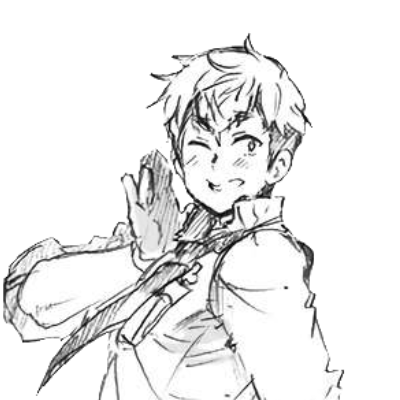
Republic of Ireland
This is one of Arthur's simpler relationships, and yet it is also one of the most brutal. There is simply no goodwill and Arthur knows that he is hated. Whenever he sees Ireland, a part of his soul withers and he feels very much like a puppy with is tail between his legs (more so even than with Peter, because Ireland is able to consistently hold him to account for his sins). Ireland is a colony for whom Arthur has deconstructed most of his cruelty, especially given the events of recent decades — the guilt gnaws at his insides, though he maintains his outward composure and doesn't let it show. Still, it's an awfully uncomfortable feeling, and so he avoids Ireland at all costs. Out of sight, out of mind. If you ask Arthur about him, he might vaguely allude to the fact that he isn't welcome there, and won't speak any further on the issue. World meetings with him are excruciating. He will not answer any questions about Conor — Ireland doesn't ask him unless it's for the purpose of starting a fight. Rather, he asks Scotland... And Arthur gets an unsettling feeling when those two talk.








